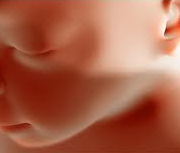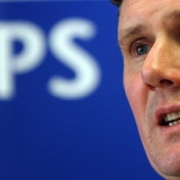Extending abortion into Northern Ireland – should or shouldn’t we?
 At their annual meeting in June the BMA planned an emergency debate to consider the extension of the Abortion Act 967 to Northern Ireland. As it happened, the debate did not take place due to lack of time, however it reflects how much momentum and pressure there now is to change Northern Irish abortion law.
At their annual meeting in June the BMA planned an emergency debate to consider the extension of the Abortion Act 967 to Northern Ireland. As it happened, the debate did not take place due to lack of time, however it reflects how much momentum and pressure there now is to change Northern Irish abortion law.
Northern Ireland is well and truly in the sights of pro-abortion campaigners – and the abortion industry.
Although there is a new momentum to push for a change in Northern Ireland, it has been brewing for some time. The We Trust Women campaign to decriminalise abortion across the UK has been running for some years now, and one aspect of its remit has always been to change – liberalise – the law in Northern Ireland. In their words: ‘The time is now for Northern Ireland’.
The referendum vote in June in the Republic of Ireland on the repeal of the Eighth Amendment from the Irish Constitution gave a win to those who want to liberalise the abortion law, paving the way for the Irish Government to introduce a bill even more permissive than the Abortion Act 1967, including abortion on demand up to 12 weeks.
A combination of this Republic vote and the suspension of the Stormont Assembly in Northern Ireland has encouraged the abortion lobby to argue even more for Westminster to extend permissive abortion legislation to Northern Ireland. The Abortion Act 1967 does not apply in NI so abortion there is illegal, with limited exceptions (to preserve life of women or for the risk of real and serious adverse effect on her physical or mental health).
Although the Government has called on Northern Irish politicians to consider amending NI abortion laws it has thus far maintained that it is a devolved competency.
Why should our abortion law not be extended to Northern Ireland?
1: We should respect the views of the Northern Irish on abortion
Secretary of State for NI, Karen Bradley says: ‘Abortion has been a devolved matter in Northern Ireland since it was created in 1921, and it would not be appropriate for Westminster to seek to impose its will, or to be the arbiter of an issue that has long been devolved to the people of Northern Ireland. The Government believe that the question of any future reform in Northern Ireland must be debated and decided by the people of Northern Ireland and their locally elected, and therefore accountable, politicians…’
By implication, imposing ‘our’ views on NI is not only undemocratic, it is insulting, effectively saying ‘we know better than you’.
Ruth Davidson MSP says: ‘ …as someone who operates in a devolved administration, I know how angry I would be if the House of Commons legislated on a domestic Scottish issue over the head of Holyrood.’ While supporting abortion herself, she understands that as a devolved matter any imposition in NI would have implications for Scottish devolved laws, including abortion.
There is more at stake with devolution than solely abortion law. The political situation in Northern Ireland is notoriously fragile so calls to ignore and override their democratically sanctioned laws and undermine devolution demonstrate a lack of understanding of the sensitivities between the political parties there and could even serve to break up the constitutional arrangements in place.
2: Anomalies are inevitable with devolution
Fiona Bruce MP says that: ‘it is disrespectful to the people of Northern Ireland, on such a sensitive issue, to suggest that this Parliament should consider changing laws that would affect abortion. Abortion has been a transferred matter, as have health and social services, equal opportunities and justice.’
SNP member, Deidre Brock said of abortion, in a Parliamentary debate, comments that: ‘It is a matter devolved and, frankly, it matters not a jot whether the decisions made at Stormont, when it is sitting, are agreeable to Members sitting here. That is the point of devolution, a point that some Members of this place have been spectacularly slow to appreciate at times.’
3: There is no strong demand in NI for a change
Somewhat ironically, given this current push for change, the law on abortion in NI has had the most recent democratic mandate and sanction – more recently than any other parliament in the United Kingdom! It was debated in 2016 by the Northern Ireland Assembly, when a clear majority, including both Unionists and Nationalists, upheld the law on abortion as it currently stands.
When voters in NI were asked whether they supported abortion simply because a woman did not want the child only 34% said ‘yes’ and 60% said ‘no’.
Moreover the political consensus in NI is not a pro-choice one. Jeffrey Donaldson DUP says: ‘Politicians across the political divide and religious spectrum in Northern Ireland—as in other parts of the United Kingdom—have, and continue to hold, a similar view to the DUP. This includes both Unionists and nationalists in Northern Ireland, and people of all faiths and none.’
4: Access to abortion is not a human right
There is no such thing as right to abortion anywhere in the international law. On the contrary, all UN foundational documents uphold the dignity of every human life, no matter how young or old. See this blog here.
The recent Supreme Court judgment on the law on abortion in NI found there is no right to abortion on request under the European Convention on Human Rights and no requirement for abortion on the grounds of disability.
5: Liberalising the law would increase abortion numbers
The exponential increase in abortions in the UK since 1967 Act was passed is evidence of the effect of a liberal abortion law. Should more proof be needed, it has been estimated, and independently verified, that over 100,000 people are alive today because Northern Ireland did not enact the 1967 Abortion Act. The ASA found: ‘…the evidence indicated that there was a reasonable probability that around 100,000 people were alive in Northern Ireland today who would have otherwise been aborted had it been legal to do so.’
This is to be celebrated, not changed by dismantling the entire regulatory framework surrounding abortion.
6: The abortion industry is leading the charge
Abortion providers – with obvious vested interests in increasing numbers of abortions – are helping to drive these campaigns. Stella Creasy MP makes this clear: ‘I am proud to have been able to work on this issue with the Alliance for Choice, the London Irish Abortion Rights Campaign, the British Pregnancy Advisory Service, the Family Planning Association, Marie Stopes and Amnesty International. We have not stopped planning for this since last year’s vote to secure access for Northern Irish women to abortion here on the NHS.’
7. This is a Trojan horse
Many of those involved in campaigning for ‘law reform’ in NI are seeking much wider legal change than just ‘hard cases’. Maria Caulfield MP says: ‘What that shows, as we have heard from several speakers, is that this issue is actually a Trojan horse for what is really wanted—the removal of sections 58 and 59 of the Offences Against the Person Act 1861 would introduce abortion on demand, for any reason, up to 24 weeks. Crucially, that is what this debate is really about, and it is disrespectful to women in Northern Ireland to pretend it is about anything else.’
8. Life is precious; both lives matter
What a far cry all this is from just 70 years ago when, in 1947 the BMA, called abortion ‘the greatest crime’. Their statement on ‘War Crimes and Medicine’, submitted to the General Assembly of the World Medical Association in September said clearly: ‘….the greatest crime being co-operation in the destruction of life by murder, suicide and abortion.’
The message for Northern Ireland, is simple. The law should remain as it is – protecting the life, health and dignity of both mothers and their unborn children as far as possible.












Leave a Reply
Want to join the discussion?Feel free to contribute!